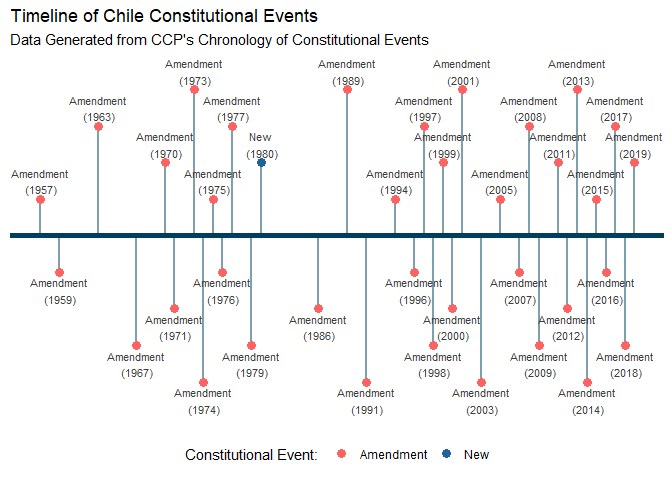demcon is designed to provide researchers and practitioners with brief literature reviews and programmatic access to several popular polity, democratic, institutional, and constitutional datasets. This package provides comparative context to the datasets in addition to documented functions that help users acquire, process, and visualize widely used political science datasets.
demcon was developed as part of the DANTE Project, which is led by ISciences LLC in partnership with the Center for International Earth Science Information Network (CIESIN), and CASE Consultants International. This project was made possible by generous support from the U.S. Army Engineer Research and Development Center (ERDC). DANTE is an open science platform designed to increase accessibility to and accelerate the interdisciplinary study of environmental stresses, demographics, economics, health, political instability, and humanitarian response. The platform is designed to be inclusive and welcomes contributions from environment-security students, scholars, and practitioners worldwide.
You can install the released version of demcon from DANTE’s GitLab project.
devtools::install_gitlab("dante-sttr/demcon")For more detailed information visit the demcon package website.
demcon currently provides brief review or programmatic support for several political datasets:
Currently, demcon can be used to acquire, process, and visualize select number of political datasets.
Download Polity5, load into the local environment, and delete the
downloaded .zip file.
polity<-demcon::get_polity5(load = TRUE, del_file = TRUE)
head(polity)
#> # A tibble: 6 × 37
#> p5 cyear ccode scode country year flag fragm…¹ democ autoc polity polity2
#> <chr> <chr> <chr> <chr> <chr> <chr> <chr> <chr> <chr> <chr> <chr> <chr>
#> 1 0 7001… 700 AFG Afghan… 1800 0 <NA> 1 7 -6 -6
#> 2 0 7001… 700 AFG Afghan… 1801 0 <NA> 1 7 -6 -6
#> 3 0 7001… 700 AFG Afghan… 1802 0 <NA> 1 7 -6 -6
#> 4 0 7001… 700 AFG Afghan… 1803 0 <NA> 1 7 -6 -6
#> 5 0 7001… 700 AFG Afghan… 1804 0 <NA> 1 7 -6 -6
#> 6 0 7001… 700 AFG Afghan… 1805 0 <NA> 1 7 -6 -6
#> # … with 25 more variables: durable <chr>, xrreg <chr>, xrcomp <chr>,
#> # xropen <chr>, xconst <chr>, parreg <chr>, parcomp <chr>, exrec <chr>,
#> # exconst <chr>, polcomp <chr>, prior <chr>, emonth <chr>, eday <chr>,
#> # eyear <chr>, eprec <chr>, interim <chr>, bmonth <chr>, bday <chr>,
#> # byear <chr>, bprec <chr>, post <chr>, change <chr>, d5 <chr>, sf <chr>,
#> # regtrans <chr>, and abbreviated variable name ¹fragment
#> # ℹ Use `colnames()` to see all variable namesdemcon provides functions that automates common
processing tasks for political science datasets. In this quick example
we load Varieties of Democracy (V12) and use
demcon::prep_vdem() to select indicators of interest, index
the data to only Correlates of War country-years, drop Palestinian
observations, and average values for Serbia and Kosovo (< 2008) and
the State Union of Serbia and Montenegro (2003-2006).
vdem<-demcon::get_vdem()
vdem<-demcon::prep_vdem(vdem,
cow_index = TRUE,
drop_pal = TRUE,
srb_kos = TRUE,
srb_mon = TRUE)demcon can help you visualize political datasets. In this example we plot we plot constitutional changes in Chile from 1950 to present day.
cce<-demcon::get_cce()
cce<-demcon::prep_cce(cce, evnttype_fix = TRUE)
plot(cce, cntry = "Chile", years = c(1950, 2022))
demcon also provides short vignettes that help users acquaint themselves with key constitutional datasets and analytic techniques. These include: